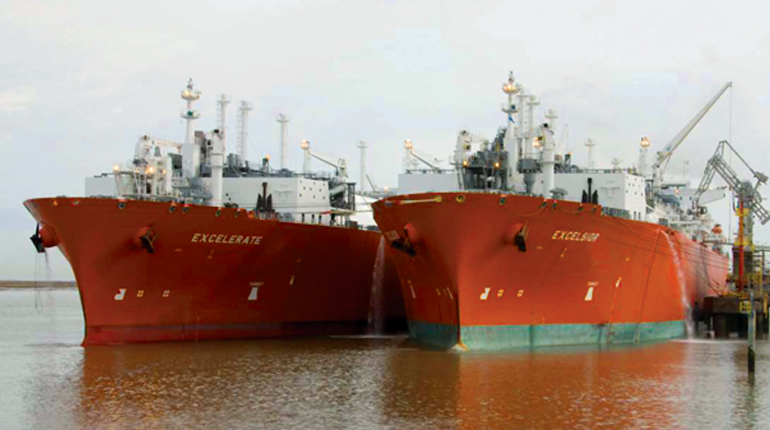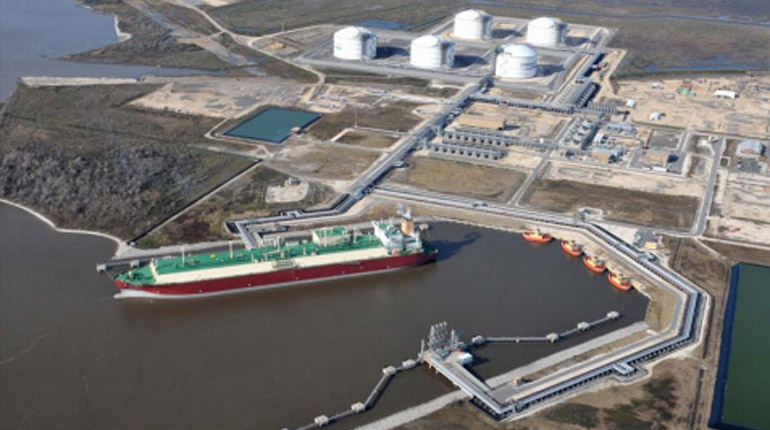 Bahía Blanca. Argentina’s second LNG cargo from Sabine Pass arrived there last week. (YPF)
Bahía Blanca. Argentina’s second LNG cargo from Sabine Pass arrived there last week. (YPF)
Argentina could take advantage of cheap LNG from the United States during the southern hemisphere winter as the Latin American country turns back to imports to meet demand, experts have told Interfax Natural Gas Daily.
Argentina’s energy minister, Juan José Aranguren, told local press last week the country would import up to 90 LNG cargoes in 2016. He added that up to 41 cargoes would be imported during the country’s winter, which runs from June to August.
Andres Rojas, an LNG analyst at IHS Waterborne, told Interfax Natural Gas Daily last week that Agentina has two supply options from the Cheniere-operated Sabine Pass liquefaction plant in Louisiana.
"The Cheniere volumes that they have reserved for their own trading operations will be a good fit for Argentina," said Rojas. "Cheniere has more of a competitive advantage since they don’t have [a very high] tolling fee," he added.
Argentina has a second supply option in BG Group, which is set to start loading commercial cargoes from Sabine Pass in mid-May.
The UK-based giant bought most of the offtake from the facility’s first liquefaction train, signing a 3.5 mtpa deal in October 2011 at a cost of 115% of Henry Hub plus a fixed liquefaction fee of $2.25/MMBtu.
"BG’s Sabine Pass cargoes will be priced around $4.80/MMBtu on a [free on board] basis, which might be a bit on the high side for Argentina," said Rojas. The Henry Hub price was quoted at $2.03/MMBtu on Monday.
He noted that Argentine state-run company YPF, which buys LNG on behalf of government agency Enarsa, did not award any cargoes in the tender it issued in mid-April because bids were around $5/MMBtu. "[That was] too expensive for them," said the analyst.
Flexible friends
However, Argentina could benefit from BG’s flexible portfolio. "We could see BG send its Queensland Curtis LNG volumes to Chile and then send its Sabine Pass volumes to Argentina – now that they have merged with Shell, they have so many options logistically and on the supply side," he said.
"Argentina will still have to compete with other importing countries in the Atlantic Basin, and NBP still sets the floor for spot LNG in the Atlantic," he added.
Argentina has bought two cargoes from Sabine Pass since the plant began exports in February. This included one of the six commissioning cargoes sent out during March and April. The other buyers were Brazil, India, the United Arab Emirates and Portugal.
Argentina’s first Sabine Pass cargo was loaded onto the UK-registered Stena Clear Sky vessel, which has a capacity of 174 thousand cubic metres (Mcm). Anglo-Swiss giant Glencore bought the LNG cargo from Cheniere and sold it on to YPF, according to trading sources.
The second cargo arrived at Argentina’s Bahía Blanca terminal last week on board the Bermuda-registered Gaslog Salem, which has a capacity of 155 Mcm.
The vessel has now discharged its cargo and was off the coast of Argentina on 16 May, according to the Marine Traffic website, which tracks vessels using electronic data emissions. Trading sources were unsure of the cargo’s buyer and charterer.
Sabine Pass exports are likely to be delivered to Bahía Blanca, southwest of Buenos Aires province, rather than the Escobar terminal, which is on the Paraná River about 50 km outside the capital.
Escobar normally receives smaller tankers because of draft limits in the shallow Paraná Delta. Spanish giant Gas Natural is one of a small group of LNG suppliers with smaller tankers that meet the requirements.
Argentina may be enjoying relatively cheap gas imports, but the bear market is holding back its shale industry, Francisco Grosse, a manager of unconventional exploration at Argentine independent Tecpetrol, told conference delegates at the Argentina Shale Oil and Gas Summit in Buenos Aires last week.
Grosse said that it was cheaper for Argentina’s government to import Bolivian gas via pipeline and LNG rather than pay producers up to $7.50/MMBtu for output from ‘new’ formations.
"If shale gas is going to work in the future, [wellhead prices] need import parity with LNG," he said. "If we’re importing LNG at Escobar and Bahía Blanca for $6/MMBtu and gas from Bolivia at $3/MMBtu, then shale gas won’t work," he added.
Aranguren said the country is paying an average of $6.50/MMBtu for LNG imports, with cargoes priced at $6.8/MMBtu for the Escobar terminal and $5.7/MMBtu for Bahía Blanca.







Talk to us
Natural Gas Daily welcomes your comments. Email us at [email protected].